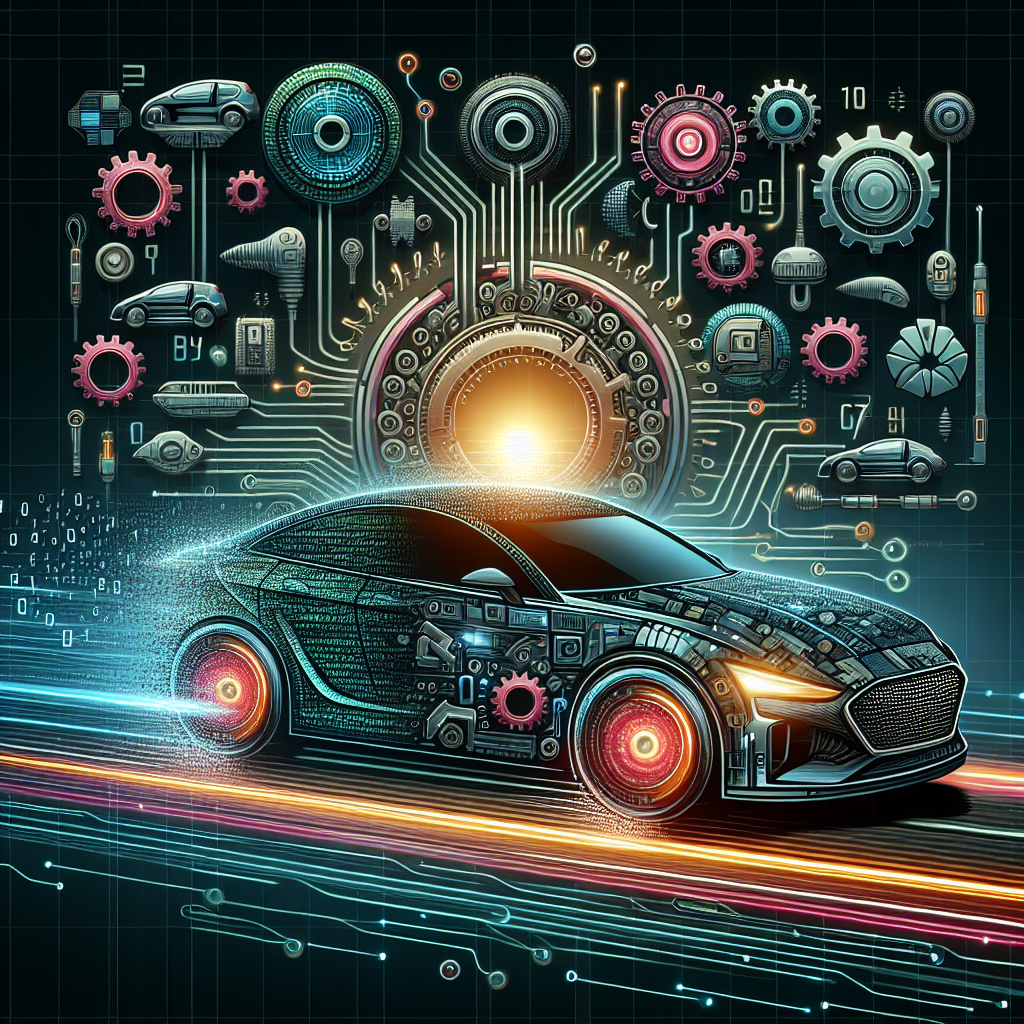The automotive industry has been undergoing significant advancements in recent years, with the integration of artificial intelligence (AI) software playing a crucial role in shaping the future of automobiles. AI has the potential to revolutionize the way we interact with our vehicles, making them safer, more efficient, and more autonomous than ever before. In this article, we will explore the current state of AI software in the automotive industry and discuss the potential future applications of this technology.
Current State of AI Software in the Automotive Industry
AI software has already made significant inroads in the automotive industry, with many car manufacturers incorporating AI-powered features into their vehicles. Some of the most common applications of AI in cars include:
1. Autonomous driving: AI software plays a key role in enabling autonomous driving technologies, such as self-driving cars. These systems use AI algorithms to process data from sensors, cameras, and other sources to make real-time decisions about driving, such as changing lanes, braking, and avoiding obstacles.
2. Driver assistance systems: Many modern cars come equipped with driver assistance systems that use AI software to help drivers navigate the road more safely. These systems can provide alerts about potential hazards, assist with parking, and even take over control of the vehicle in certain situations.
3. Predictive maintenance: AI software can be used to monitor the health of a vehicle and predict when maintenance is needed. By analyzing data from the vehicle’s sensors and diagnostic systems, AI can help prevent breakdowns and reduce repair costs.
4. Personalized experiences: AI software can be used to personalize the driving experience for each individual driver. For example, AI can adjust the seat position, temperature settings, and music preferences based on the driver’s habits and preferences.
Future Applications of AI Software in the Automotive Industry
As AI technology continues to advance, we can expect to see even more innovative applications of AI software in the automotive industry. Some potential future applications of AI in cars include:
1. Enhanced safety features: AI software can be used to improve safety features in cars, such as advanced collision avoidance systems, pedestrian detection, and adaptive cruise control. These systems can help reduce accidents and save lives on the road.
2. Improved fuel efficiency: AI software can optimize fuel efficiency by analyzing driving patterns, traffic conditions, and other factors to make real-time adjustments to the vehicle’s performance. This can help reduce fuel consumption and lower emissions.
3. Enhanced connectivity: AI software can enable cars to communicate with each other and with infrastructure, such as traffic lights and road signs. This connectivity can help improve traffic flow, reduce congestion, and enhance overall driving experience.
4. Personalized recommendations: AI software can provide personalized recommendations to drivers based on their preferences, habits, and driving behavior. For example, AI can suggest alternative routes to avoid traffic, recommend nearby restaurants or gas stations, and even adjust the climate control settings based on the driver’s comfort.
5. Advanced entertainment systems: AI software can enhance the entertainment systems in cars by providing personalized content recommendations, voice-activated controls, and even virtual assistants that can interact with the driver and passengers.
FAQs
Q: How does AI software in cars work?
A: AI software in cars works by processing data from various sensors, cameras, and other sources to make real-time decisions about driving. This data is analyzed using AI algorithms to detect patterns, predict outcomes, and respond to changing conditions on the road.
Q: Are self-driving cars safe?
A: Self-driving cars are still in the early stages of development, but they have the potential to be safer than human drivers. AI-powered autonomous driving systems can react faster and more accurately to potential hazards, reducing the risk of accidents.
Q: Will AI software replace human drivers?
A: While AI software has the potential to enable fully autonomous driving in the future, it is unlikely to completely replace human drivers anytime soon. Human drivers will still be needed to monitor the vehicle and intervene in case of emergencies.
Q: How will AI software impact the automotive industry?
A: AI software is expected to have a transformative impact on the automotive industry by enabling safer, more efficient, and more autonomous vehicles. This technology will drive innovation in areas such as safety, connectivity, and personalized experiences for drivers and passengers.
In conclusion, AI software is poised to revolutionize the automotive industry in the coming years, with the potential to make cars safer, more efficient, and more autonomous than ever before. With advancements in AI technology continuing to push the boundaries of what is possible, we can expect to see even more innovative applications of AI software in cars in the near future. As the automotive industry embraces AI, we can look forward to a future where cars are not just vehicles, but intelligent machines that enhance our driving experience and make our roads safer for everyone.

